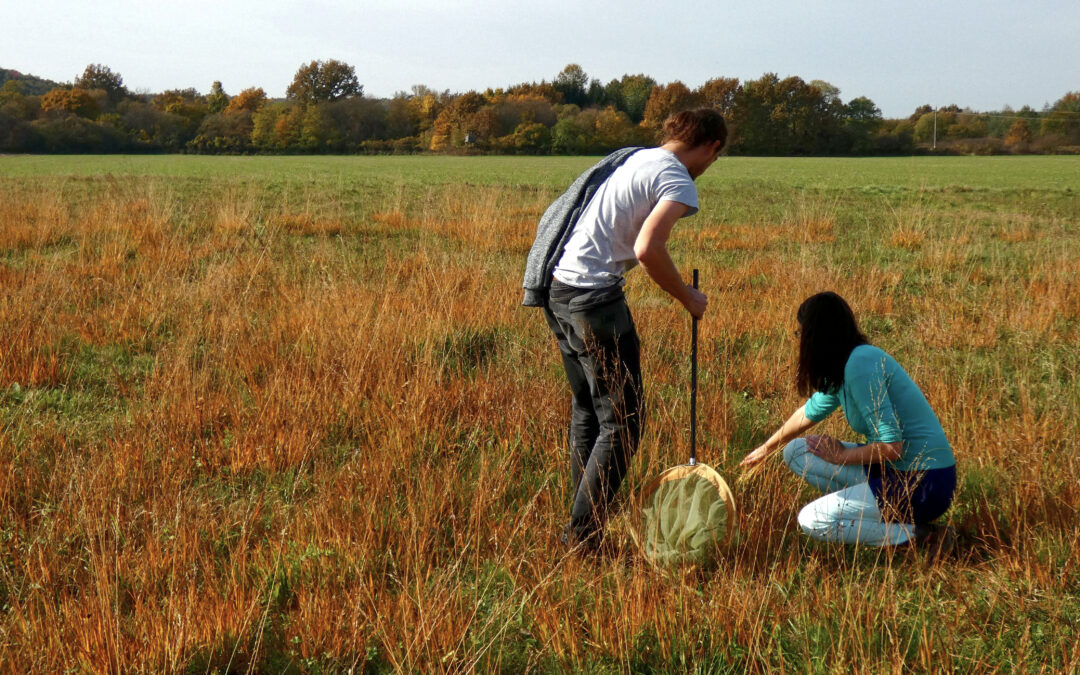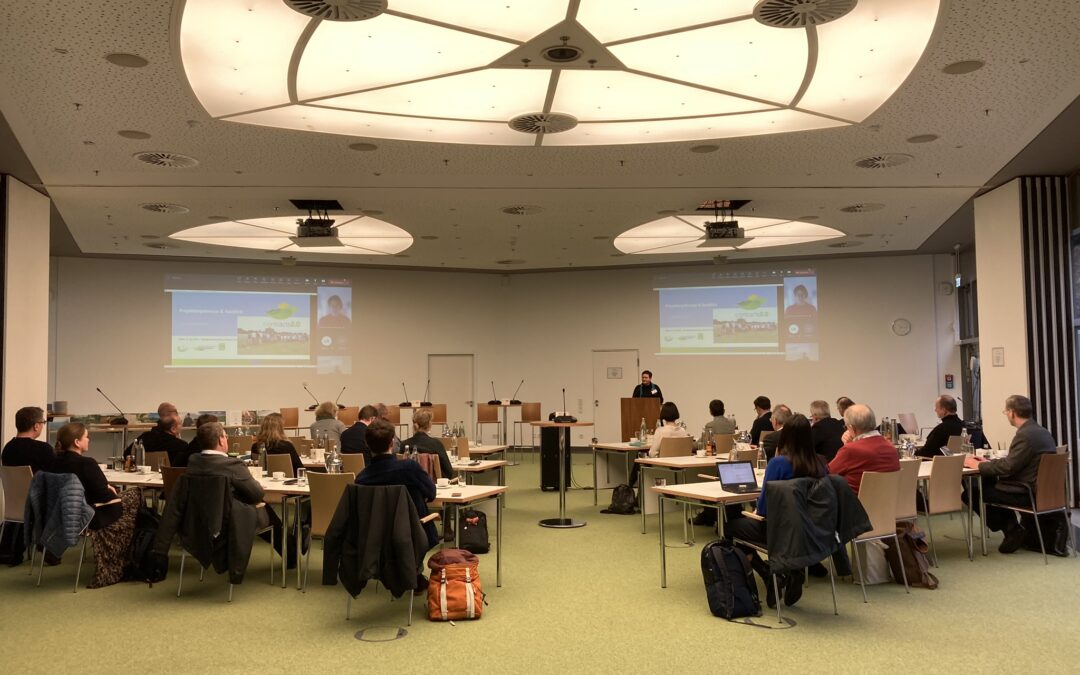
Development of innovative agri-environmental contracts in contracts2.0 case study regions
In three countries that established Contracta formal, written agreement for a specified duration signed by (at least) two parties. In Contracts2.0, we acknowledge the existence of informal contracts but use formal contracts to focus the research. More Innovation Labs in one or several case study regions explicit changes have been made in the policymaking on AECM notably inspired by contracts2.0. Elements of the innovative contracta formal, written agreement for a specified duration signed by (at least) two parties. In Contracts2.0, we acknowledge the existence of informal contracts but use formal contracts to focus the research. More proposals are now being implemented. Many innovation labs found themselves in several stages of implementation (negotiation, testing, mainstreaming) at once. This may be due to the fact that they are working on several contracts at the same time or because only some elements of the proposed contracta formal, written agreement for a specified duration signed by (at least) two parties. In Contracts2.0, we acknowledge the existence of informal contracts but use formal contracts to focus the research. More have moved on to the testing or implementation phase. The main challenges to implementation were, among others, the lack of support from policy, realistically aligning the innovative structures with existing regulations, and the lack of financing for important intermediaries. Some CILs also lacked the interest from farmers or struggled with the need to raise public awareness. This goes to show, that a participatory process needs to be properly set up, and considerable effort is needed for successful continuation. At the same time, the successes make a significant difference and set a motivating example.
Belgium
In Flanders, Belgium, groups of farmers will be beneficiaries for non-productive investments under the new CAP. Contracts2.0 action partner BoerenNatuur Vlaanderen (BNVL) together with research partner INBO and the support of multiple regional stakeholders also succeeded in including results-based elements in the new AECM on botanical grassland management. Furthermore, one province is willing to scale up an agglomeration bonusis an additional payment to the providers of ecosystem services (ES) if an environmental outcome has been achieved at a larger spatial scale (e.g., beyond the field/ farm scale, within a predefined region/landscape or watershed). ... More for erosion control to more areas in Flanders. The Flemish case study is a good example of the real-life changes contracts2.0 was able to generate. In addition, organisers of local CILs and the PIL observed a high interest in implementing more innovative approaches in the future and while the process of incorporating new measures into the Strategic Plan somewhat exceeds the project running time, the participatory process succeeded in connecting the essential stakeholders to take the processes further. The video produced on the consortium field trip to the Flemish case study regions also depicts the positive practitioner perspectives on the project and the topic (see here).
Spain
In the Madrid Region, a new AECM has been added to the Madrid Rural Development Plan thanks to the work of project action partner Heliconia and project research partner UAM. A measure for non-productive investments for agri-environmental objectives now allows land stewardship entities to become beneficiaries of the aid to support farms through contracts. The Spanish project partners have also organised seminars to introduce this new measure to local stakeholders and have presented their work on multiple occasions (e.g. webinars and conferences) in the region to raise awareness. This is a positive impact of the bottom-up approach exercised within the CIL / PIL Madrid where shortcomings of current agri-environmental contracts and consequently possibilities for improvement were identified. Solutions for real-life implementation were discussed with the local stakeholders to ensure a legitimate addition to the AECM and thus, a direct impact on policy design can be reported.
Germany
Several federal states will include a collective approachrefers to a collection of approaches that involve more than two individuals or parties who are progressing towards a common goal by undertaking collective action. Collective approaches may make use of collective contracts and coll... More for AECM, for example following the example of Dutch collectives. The bottom-up participatory approach in contracts2.0 helped foster the international knowledge exchange on the topic significantly.
Although not formally part of contracts2.0 and its CILs/PILs, the case of German federal state of Brandenburg is included here because it offers a further example of the introduction of innovative contracts, namely collective contracts. Brandenburg was the first German state legally implementing collective AECM. Inspired by the Dutch model, collective AECM were introduced with the CAP funding period starting in 2023, though as additional option next to individual AECM (instead of switching the whole system, like in the Dutch case). Jointly with the German Landcare Association (Deutscher Verband für Landschaftspflege, DVL), contracts2.0 project coordinator ZALF worked on developing mandatory and optional criteria for the institutional design and actor constellation within a collective and the design of collective contracts to derive policy implications and recommendations (in accordance with work carried out in WP2 on the analysis of existing contracts). This has been done by integrating results and experiences of contracts2.0 and a series of interviews with farmers in Brandenburg. ZALF also invited the Brandenburg ministry of agriculture, environment and climate protection (MLUK) – which was strongly engaged in promoting the collective approachrefers to a collection of approaches that involve more than two individuals or parties who are progressing towards a common goal by undertaking collective action. Collective approaches may make use of collective contracts and coll... More – to the contracts2.0 CIL/PIL exchange in Germany. The idea of introducing collective AECM to Brandenburg was initiated by the ministry itself. By inviting a driving member of said ministry to CIL/PIL exchanges, practical aspects of the implementation of collectives and their inclusion in Strategic Plans were shared with other German federal states, serving as a successful inspiration for many. Especially interesting was the many detailed insights in the necessary regulatory framework for the legal implementation of collectives as an addition to individual AECM.
The most important aspects gathered from the farmer interviews in Brandenburg were the desire for more flexibility (concerning land tenureLand tenure is an institution, i.e., rules invented by societies to regulate behaviour. Rules of tenure define how property rights to land are to be allocated within societies. They define how access is granted to rights to use, c... More, occurrence of extreme weather events, contracting time), a reduction of the bureaucratic workload and financial attractiveness of the new scheme. Generally, farmers are convinced of the ecological effectiveness of the collective approachrefers to a collection of approaches that involve more than two individuals or parties who are progressing towards a common goal by undertaking collective action. Collective approaches may make use of collective contracts and coll... More and expect increased knowledge exchange and the possibility of learning.
Contracts2.0 contributed to the realisation of the collectives in Germany through extensive research on the Dutch model, providing contacts to Dutch colleagues and the series of interviews with Brandenburg farmers that were delivered to the ministry, which took them into account when designing the new collective approachrefers to a collection of approaches that involve more than two individuals or parties who are progressing towards a common goal by undertaking collective action. Collective approaches may make use of collective contracts and coll... More. Including the farmers’ perspectives in the contracta formal, written agreement for a specified duration signed by (at least) two parties. In Contracts2.0, we acknowledge the existence of informal contracts but use formal contracts to focus the research. More design will arguably have a positive impact on their legitimacy and acceptance. Due to the close involvement of project partner ZALF, the German experiences and insights could also be translated into English for the other project partners’ benefit.
Currently, 5 collectives are being established in Brandenburg. The current CAP funding period is considered to be a pilot phase and trial period, in which regulations concerning the collectives are not yet “set in stone” and allow for some flexibility. Due to time constraints, no specific new measures have been introduced yet. In fact, during the current funding period, the previous (individual) measures (AECM) are now possible to be carried out collectively. However, for the following funding periods, the introduction of new collective AECM is planned.
© Picture: Eszter Cibik, ONPD, Hungary







